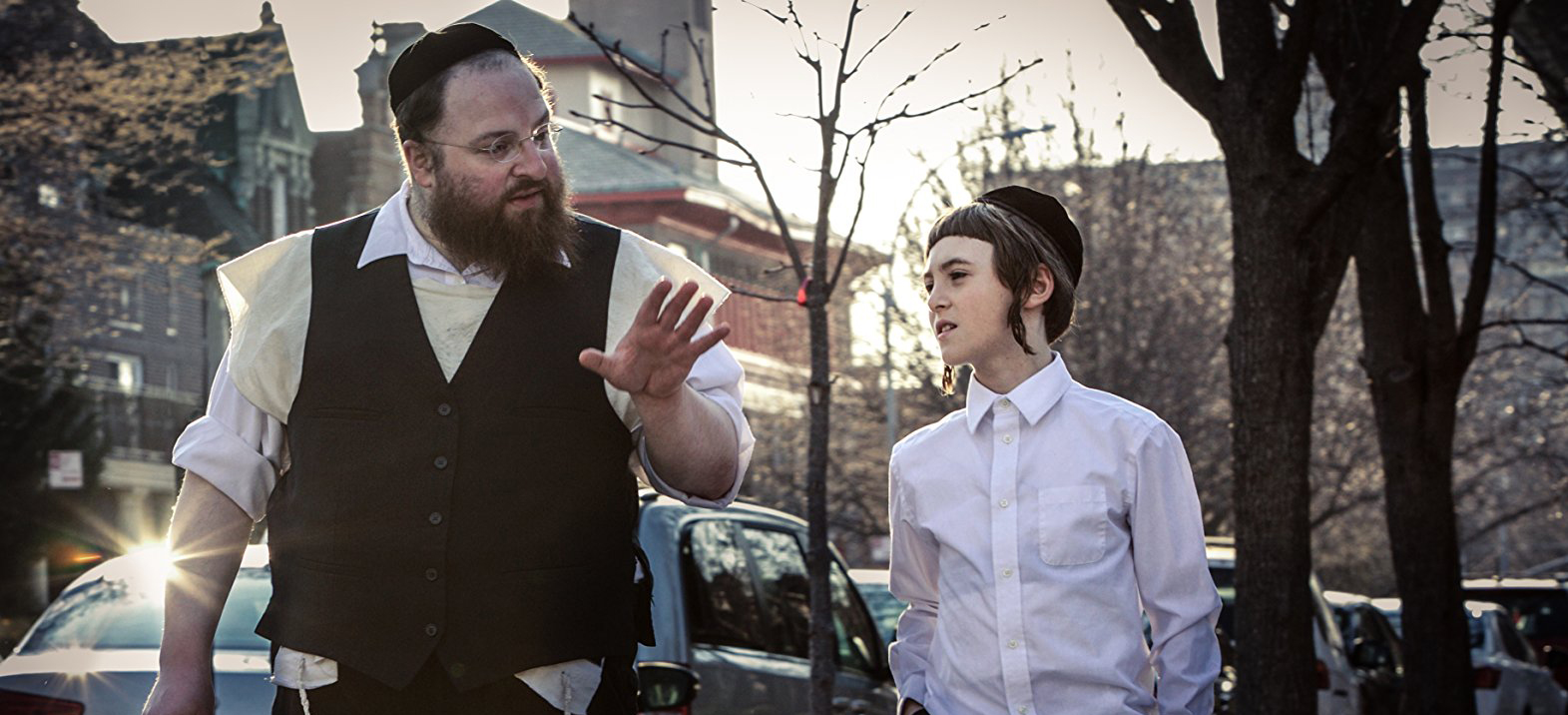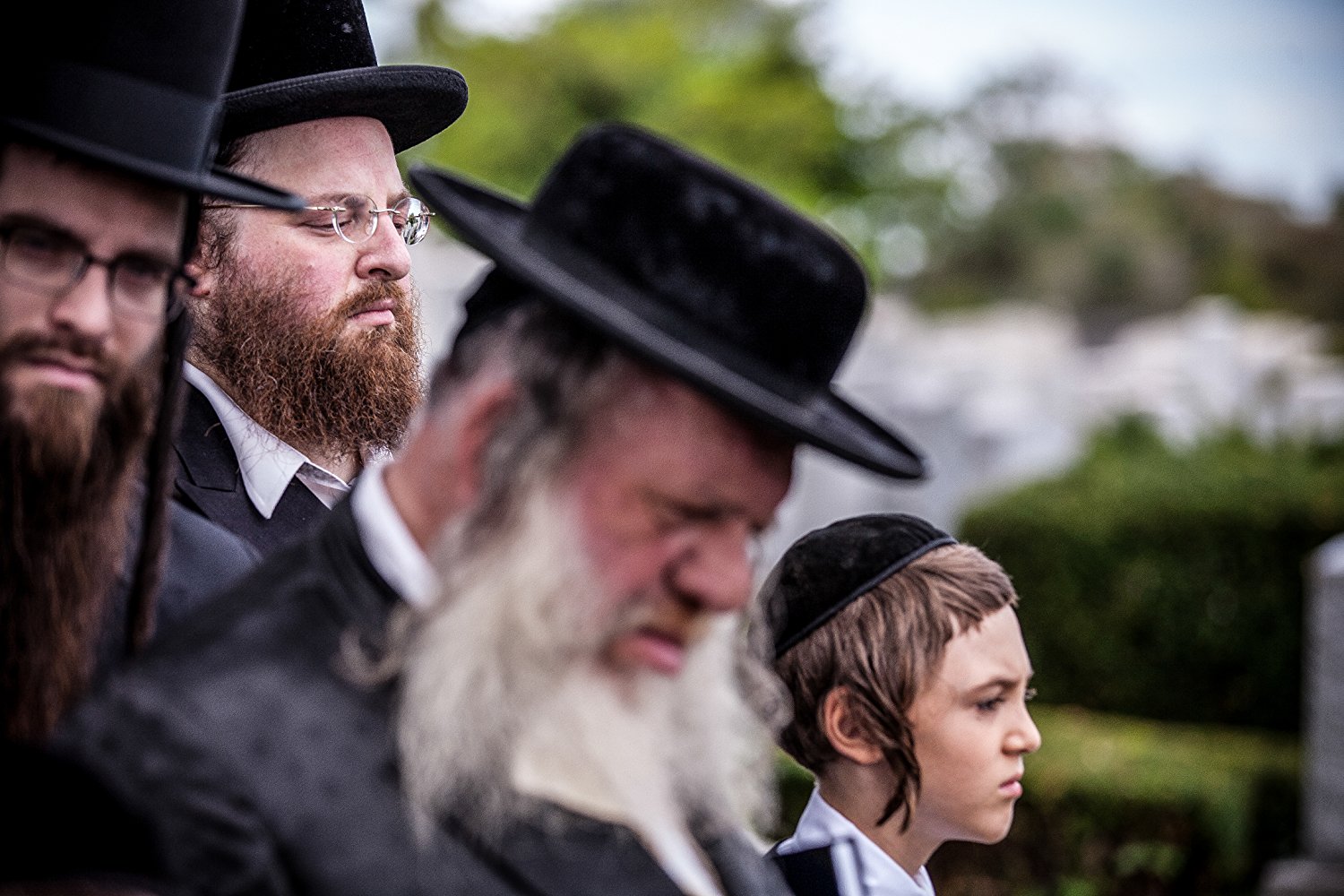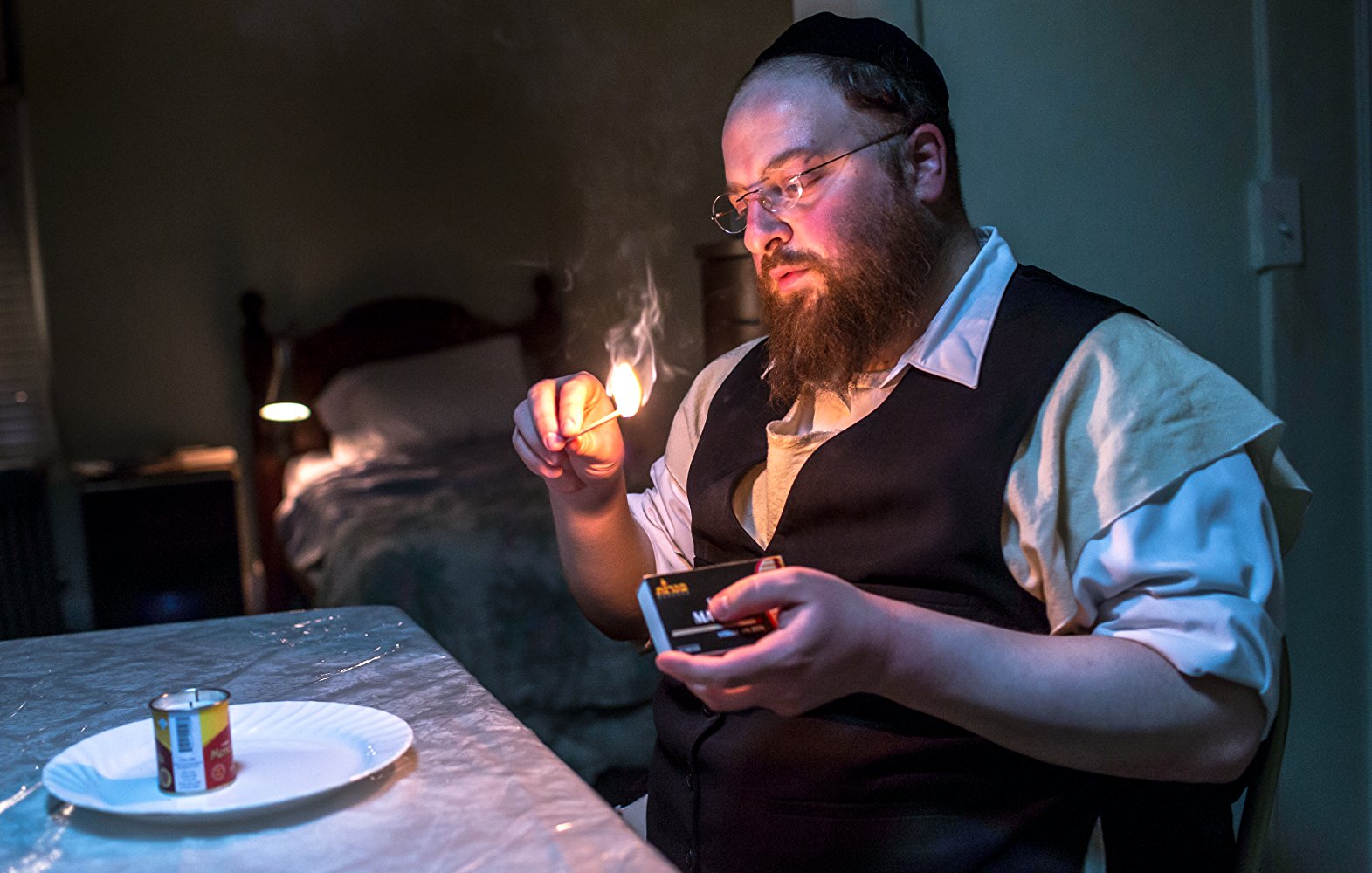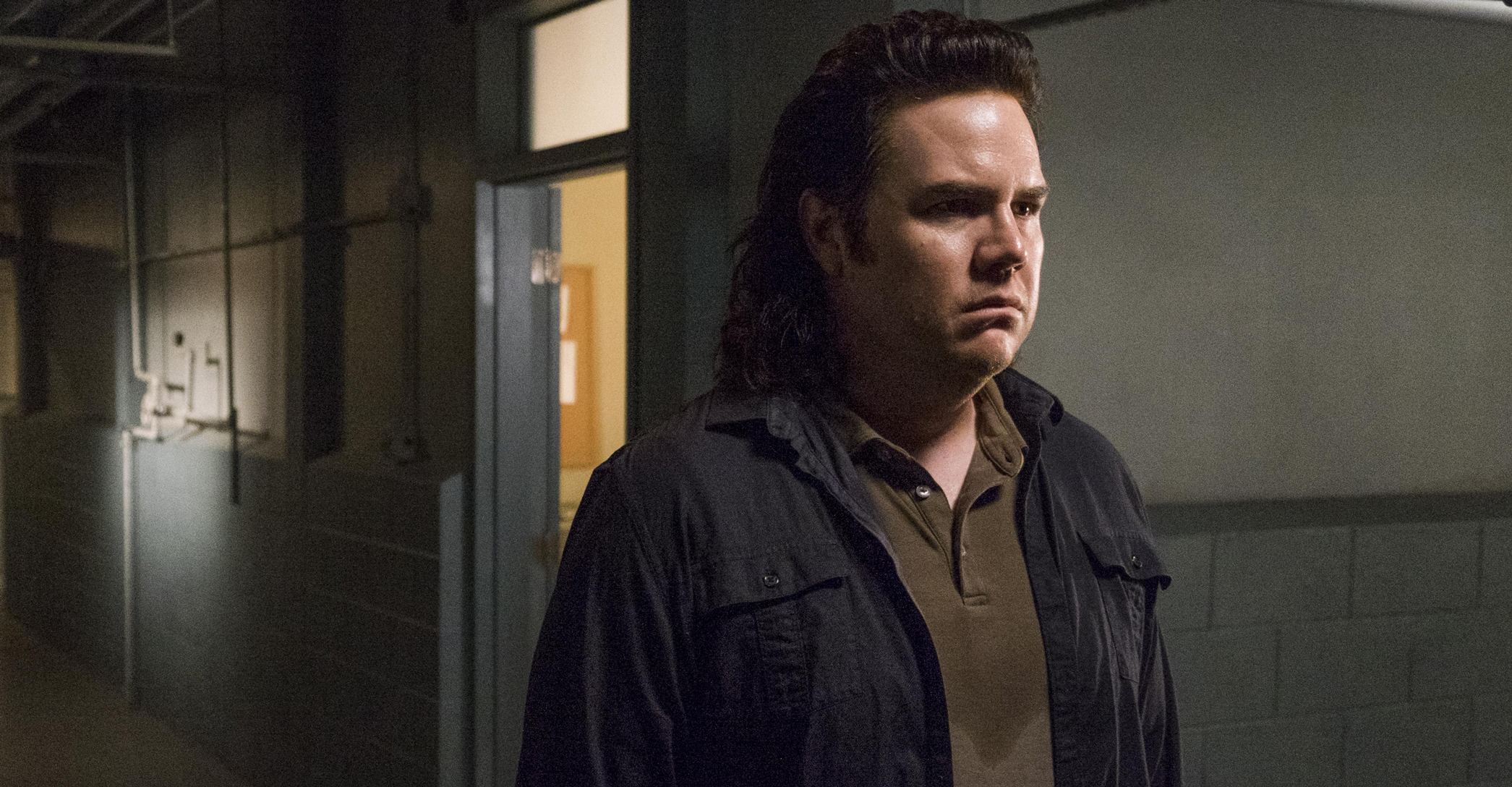Menashe Review

Genre: Drama
Directed by: Joshua Z Weinstein
Starring: Menashe Lustig, Yoel Falkowitz, Ruben Niborski
It’s nearly a year since Menashe (Menashe Lustig) lost his wife to cancer. He’s part of an ultra-orthodox Jewish community in Brooklyn, and since her death, his young son Rieven (Ruben Niborski) has been living with his aunt and uncle.
Due to a Hasidic tradition, Menashe can only live in the same home as Rieven again once he has remarried. Still in mourning, and not eager to marry another woman so soon, he sets about finding ways to get around the rulings of his religious elders and reclaim Rieven.
Filmed almost entirely in Yiddish, Menashe is a rare glimpse into the notoriously insular Hasidic community. All the actors are ultra-orthodox Jews, and writer-director Joshua Weinstein has clearly taken pains to ensure that his film remains authentic to the Hasidic experience.
He is helped tremendously by his leading man, Menashe Lustig, whose own life-story was borrowed from liberally in the creation of the screenplay. Lustig had never appeared in a film before (in fact, before attending the premiere of Menashe, he’d never even been inside a cinema), yet he leads the movie with a charismatic, complex performance. Lustig’s bond with Ruben Niborski, who plays his son, is genuine and lovely. Whilst Weinstein’s care in truthfully portraying Hasidic life is admirable, as a piece of cinema, Menashe doesn’t work quite so well. Taking place entirely on busy streets and inside small residences, the film has a clamped, claustrophobic feel. Weinstein, working with cinematographer Yoni Brook, is so concerned with keeping his camera unobtrusive that he forgets to make it interesting; visually Menashe remains drab and undistinctive for all its eighty minutes.
Whilst Weinstein’s care in truthfully portraying Hasidic life is admirable, as a piece of cinema, Menashe doesn’t work quite so well. Taking place entirely on busy streets and inside small residences, the film has a clamped, claustrophobic feel. Weinstein, working with cinematographer Yoni Brook, is so concerned with keeping his camera unobtrusive that he forgets to make it interesting; visually Menashe remains drab and undistinctive for all its eighty minutes.
The screenplay’s concern with the intricacies of Hasidic life means that it frequently loses grasp of the narrative. Whilst the milieu may be specific, the father-son relationship at the heart of Menashe is universal, and that’s where the emotional potency lies. It’s strongest when there’s only Menashe and Rieven onscreen. When Menashe is alone, or conversing about religious law with one of many other men, the film loses its warmth, and becomes a drag.
There’s one scene early on, when Menashe is meeting a potential wife in a café, which offers a glimpse at a different, and arguably more compelling angle that Menashe could have taken.
It’s clear that they are not a good match; she is far more conservative than him, and he is not good at hiding his ambivalence to remarriage. When Menashe asks if she is ready to be married again, only having been widowed four months ago, she scoffs and replies, “Besides marriage and kids, what else is there?”.
We don’t see this woman again. From the passionate, sad impression she makes in her solitary scene, that’s a real shame. You feel the absence of women in this movie keenly. During the rest of the film, I frequently found myself wishing we were watching her story, and not Menashe’s. As an exploration into the life of a middle-aged widower in a Hasidic community, Menashe is successful. The film is rich in detail, and the real-life experiences of the actors, particularly Lustig, adds a palpable authenticity to the proceedings.
As an exploration into the life of a middle-aged widower in a Hasidic community, Menashe is successful. The film is rich in detail, and the real-life experiences of the actors, particularly Lustig, adds a palpable authenticity to the proceedings.
As a movie however, it works less well. Menashe gets so bogged down in the rules and regulations of Hasidic life, it forgets to be a film; it never soars, either visually or emotionally. Lustig gives an excellent performance, and his on-screen son clearly felt comfortable with him, but whenever the two are separated, everything falters.
Ultimately, Menashe is far more rewarding as an anthropological document than a film.
★★★


